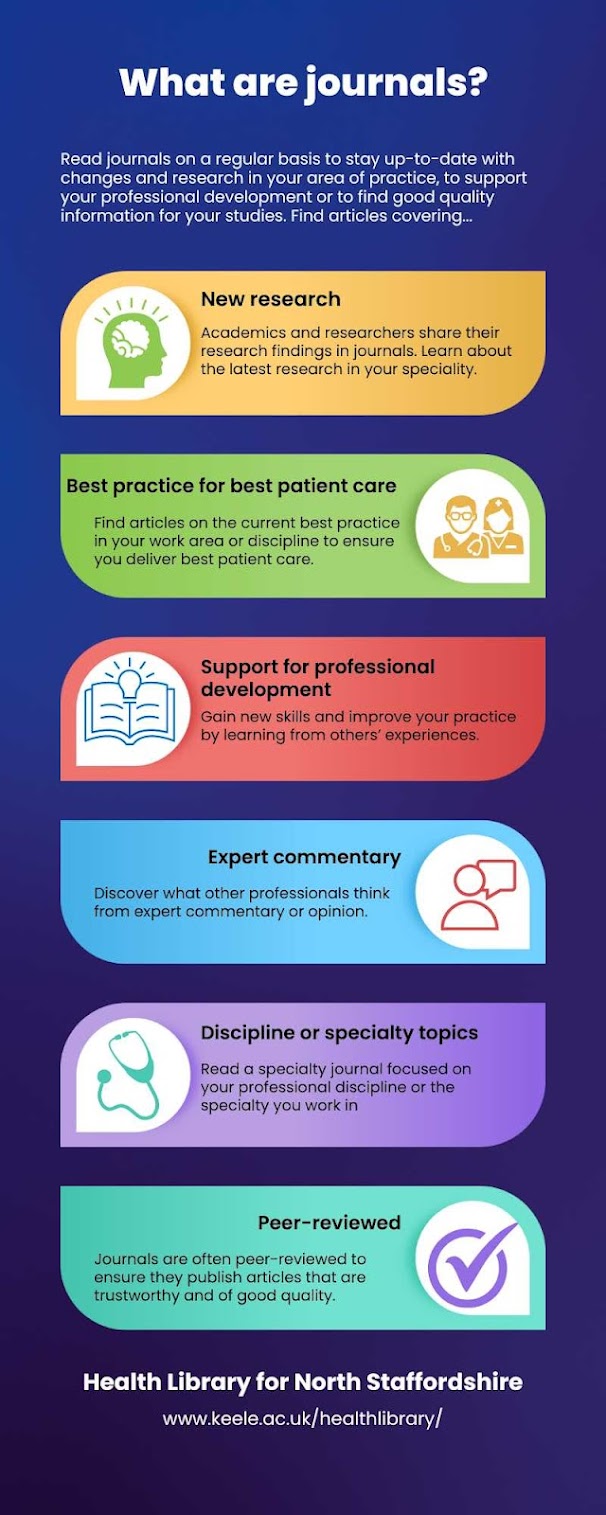We’re going to be showcasing some of our journal titles this year by a Journal of the Week blog post. They may be popular titles, or subject specialist, or especially for a particular group of healthcare workers.
But what are journals and why do you need them?
Journals are the source of articles written by academics, researchers and experts in their subject areas. They are published on a regular basis as an issue, in print and/ or online. Most of our journals are available online. You should read articles on a regular basis to stay up-to-date with changes and research in your area of practice, to support your professional development or to find good quality information for your studies.
Articles may be written
about:
- New research
- Best practice
- Professional development
- Discipline or specialty topics
- Expert commentary or opinion
Articles are often peer-reviewed to ensure that content is trustworthy and of good quality.
Here’s a quick summary:
Learn more about articles from our online tutorial: What is an article?
Follow our blog to learn more about our journal titles in our Journal of the Week series.
Finding Journals
Find our journal
collections via the Journals page on the Health Library website.
To learn how to find a journal
title follow the step-by-step instructions in these blog posts:
Need more help?
Contact the Health Library for help accessing resources or finding
information
Contact the eresources librarian to report a problem with any journal.

Comments
Post a Comment